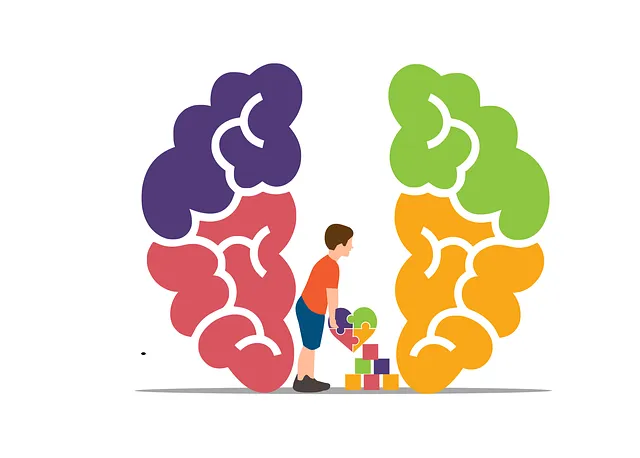Lakewood Kaiser Permanente Behavioral Health Services (LKP BHS) employs a multi-faceted data collection process, combining standardized assessments, clinical interviews, and patient-reported outcomes to gain comprehensive insights into mental health. Through advanced data analysis techniques, including sophisticated statistical methods and machine learning algorithms, LKP BHS identifies trends in patient behaviors, treatment outcomes, and risk factors. This data-driven approach allows them to tailor interventions for self-esteem improvement and burnout prevention, enhancing care quality and revolutionizing healthcare service delivery. Accurate interpretation of mental health data, achieved through visualization and collaborative feedback, ensures culturally competent care while empowering providers and patients with knowledge through resources like the Mental Wellness Podcast Series Production.
Mental health data analysis is a powerful tool for understanding and improving patient care. This article explores advanced techniques used by Lakewood Kaiser Permanente Behavioral Health Services (LKP BHS) to analyze and interpret mental health data, offering valuable insights that drive data-informed decision-making. From understanding unique data collection methods at LKP BHS to implementing advanced analysis tools, we delve into strategies that enhance patient outcomes in behavioral health services.
- Understanding Mental Health Data: Collection and Overview at Lakewood Kaiser Permanente Behavioral Health Services
- Advanced Analysis Techniques for Unlocking Insights at LKP BHS
- Interpreting Results: Strategies for Data-Driven Decision Making in Behavioral Health
Understanding Mental Health Data: Collection and Overview at Lakewood Kaiser Permanente Behavioral Health Services

At Lakewood Kaiser Permanente Behavioral Health Services, understanding mental health data is paramount to delivering effective care. The collection process involves a multifaceted approach, utilizing standardized assessments, clinical interviews, and patient-reported outcomes measures. This comprehensive strategy ensures that each individual’s unique experiences and needs are accurately captured, providing a nuanced view of their emotional well-being.
By analyzing this data, healthcare professionals gain insights into various aspects of mental health, including the prevalence of specific disorders, treatment efficacy, and patient progress over time. This knowledge is instrumental in tailoring interventions to address not only symptoms but also underlying factors contributing to distress. Through such analysis, Lakewood Kaiser Permanente Behavioral Health Services fosters emotional healing processes, promotes coping skills development, and supports self-esteem improvement, ultimately enhancing the overall well-being of its patients.
Advanced Analysis Techniques for Unlocking Insights at LKP BHS

At Lakewood Kaiser Permanente behavioral health services (LKP BHS), advanced data analysis techniques are revolutionizing the way insights are uncovered and actionable strategies developed. By employing sophisticated statistical methods and machine learning algorithms, LKP BHS delves into complex datasets to identify patterns and trends that might otherwise remain hidden. This approach allows for a nuanced understanding of patient behaviors, treatment outcomes, and risk factors.
Through this data-driven lens, the organization gains valuable insights into areas such as self-esteem improvement and burnout prevention. By analyzing patient journeys and identifying at-risk groups, LKP BHS can implement targeted interventions and develop evidence-based practices. This not only enhances the quality of care but also acts as a game changer in implementing effective burnout prevention strategies for healthcare providers, ensuring a more sustainable and compassionate delivery of services.
Interpreting Results: Strategies for Data-Driven Decision Making in Behavioral Health

When analyzing mental health data, interpreting results accurately is paramount for data-driven decision-making in behavioral health services like those offered by Lakewood Kaiser Permanente. This involves not just identifying trends and patterns within the numbers but also understanding their implications for patient care. Healthcare providers must employ strategic approaches to interpret data meaningfully. For instance, visualizing data through charts and graphs can help uncover insights that might otherwise be obscured in raw figures. Additionally, contextualizing findings within the broader scope of behavioral health services ensures interventions align with evidence-based practices and patient needs.
Integrating feedback from various stakeholders, such as patients, caregivers, and clinical experts, enriches the interpretation process. This collaborative approach fosters a deeper understanding of complex mental health issues and promotes culturally competent care. For example, considering cultural nuances in data can help tailor interventions for diverse populations, enhancing their effectiveness. Furthermore, leveraging resources like the Mental Wellness Podcast Series Production can disseminate interpretative insights widely, empowering both healthcare providers and patients with knowledge to support mental health management, including mood management strategies.
Mental health data analysis is a powerful tool that, when utilized effectively, can significantly enhance patient care at organizations like Lakewood Kaiser Permanente Behavioral Health Services (LKP BHS). By employing advanced techniques to interpret complex datasets, healthcare professionals can identify trends, predict outcomes, and make informed decisions. This not only improves treatment plans but also contributes to the overall well-being of patients within the community served by LKP BHS. With a data-driven approach, the future of behavioral health care looks brighter and more personalized.






